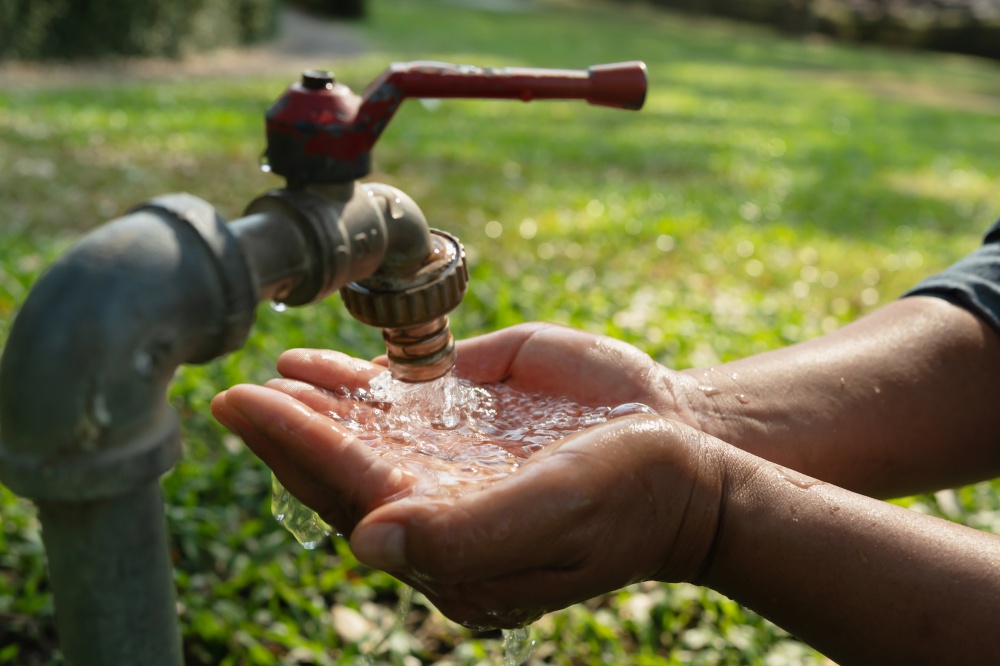INFLUENCE OF DRINKING WATER ON HUMAN HEALTH
Health is a state of complete physical, mental and social well-being. According to WHO, human health is determined by 20% of the environment, 50% lifestyle, and only 10% of it depends on the healthcare system.
A healthy lifestyle is based on proper nutrition, activity and drinking enough water. Water is more essential to the body to a greater extent than anything else, with the exception of oxygen.
French writer, poet, essayist and professional pilot Antoine de Saint-Exupery wrote: “Water, you have no taste, no color, and no smell. You cannot be described, you are enjoyed without understanding what you are! It cannot be said that you are necessary for life: you are life itself. You are the greatest wealth in the world."
In the “Canon of Medicine” of the great Avicenna, a separate chapter is devoted, which in particular says “Water is one of the elements and differs among the totality of elements in that it enters everything that we take (inside) - not because it conducts a nutrient substance that promotes the flow of nutrients and their softening and accompanies them when they pass to the vessels and rush to the passages, this kind of help is indispensable in the whole process of nutrition.
Without having modern technologies and equipment, Avicenna, with his characteristic foresight and a special intuitive gift, clearly outlined the importance of water not only in the process of absorption of food products, but also in transportation through the body.
Water and man are inextricably linked with each other. The role of water in human life is important. Surprisingly enough, water is still the least studied substance of nature. Obviously, this happened because there is a lot of it, it is omnipresent, it is around us, above us, under us, in us.
Water is, at first glance, a simple chemical compound of hydrogen and oxygen. But in fact, water is the basis of life on Earth. Explanation of its properties lies in its molecule and intermolecular structure. Water for us, first of all, is the most important component of the human body, providing a connection between the external and internal world, transporting substances between cells and organs.
The important role of water in human life come be easily to proved by an elementary example. It is enough just to ask how much a person consists of water. The total amount of water in the human body on average varies from 60% to 70% depending on weight and body composition. And it is everywhere: from the brain, and ending with muscle tissue. Interestingly, the embryo in the fifth month of life in the uterus, consists of 94% of water. But the human body is so organized that with age it loses moisture. Starting from infancy, the water content indicator is 85% of the whole body. With age, the coefficient of fullness with water already becomes 60-70%. In the elderly, moisture saturation levels are reduced to 60%.
Water has cleansing, healing, regenerating and rejuvenating properties. Also, water is of paramount importance in the digestion of food, enriching it with the necessary energy. Food particles, broken down into micronutrient, deliver all the nutrients along with energy to the entire body. Without water, food has no nutritional and energy value, as it is simply not digested.
Without the participation of blood, which consists of 90% water, nutrients are unable to themselves transport to the organs and tissues of the human body. Water stimulates the complete regeneration of tissues and all functional processes of the body, accelerates metabolism and restores the functions of the immune system. Due to which there is a rapid recovery and rejuvenation of the whole organism, normalization of weight, increase in overall energy.
A living cell needs water both to maintain its structure and to function normally. Most of the water in the body is contained in intracellular fluid (about 70%), interstitial fluid (eg. in the lymph; about 20%), and in blood plasma (about 7%). Interstitial fluid and plasma together are called extracellular fluid. The remaining 3% of the water in the body is in the intestinal lumen, cerebrospinal fluid and other parts of the body.
There are three main sources of water for the body: drinking water, which we get from various beverages, water found in foods (in solid foods), and metabolic water, which is obtained as a result of the oxidation of carbohydrates, fats and proteins. Water is absorbed in the upper part of the small intestine and through the lymph and blood to the various tissues of the body. Water is excreted through the kidneys, sweat, exhaled air. Under normal conditions, the water balance is maintained at a constant level. Water loss is normally equal to its consumption and endogenous formation and is about 2-4 liters per day.
Being a solvent of organic and inorganic substances, water is the main environment for the deployment of metabolic - exchange - processes. It is part of various systems of organic substances. For example, each gram of glycogen - animal sugar - contains 1.5 ml of water, and each gram of protein contains 3 ml of water. With its participation, such structures as cell membranes, blood transport particles, macromolecular and supramolecular formations are formed.
Water is not only a source of life, a guarantee of health, and the full functioning of the body. It is a guarantee of cheerful health, excellent mood and attractive appearance for many years. It is necessary to observe the drinking regime throughout life. The ratio of the amount of water consumed to the amount withdrawn is the water balance. For the normal functioning of the body, it is important that the influx of water fully covers the consumption, otherwise, as a result of the loss of water, serious violations of vital activity occur.
Shukurova D.A Department of Histology of SEI “Avicenna Tajik State Medical University”

